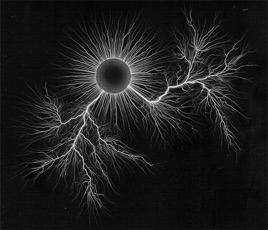
Advertise on podcast: Science History Podcast
Rating
4.9 from
Country
This podcast has
75 episodes
Language
Publisher
Explicit
No
Date created
2017/12/13
Average duration
83 min.
Release period
31 days
Description
Monthly interviews on important moments in the history of science.
Podcast episodes
Check latest episodes from Science History Podcast podcast
Retrospective: Oliver Sacks
2024/02/11
In 1994, while attending graduate school at the University of California, Berkeley, I had the pleasure of seeing a lecture by Oliver Sacks in which he discussed his work on sleeping sickness and various other neurological disorders. He also discussed his thoughts on the economy of a life. Today's episode is that lecture in full, with all the insights and charm that was Oliver Sacks.
more
Novichok: Vil Mirzayanov
2024/01/12
Novichok is the most deadly chemical weapon ever developed. With us to discuss the history of Novichok is Vil Mirzayanov. Vil worked in the secret Soviet chemical weapons laboratory that developed Novichok. He revealed its existence to the world in 1991 and was then arrested by the Russian counterintelligence service and prosecuted in a secret trial. He won his freedom with the help of an international group of scientists, including three who have appeared as guests on this podcast. He then immigrated to the United States and published his story in the book State Secrets. An Insider's Chronicle of the Russian Chemical Weapons Program, published in 2009 by Outskirts Press.
more
Pascual Jordan's Duplicity: Ryan Dahn
2023/12/11
How could a brilliant scientist and mathematician, an innovator in quantum theory, who worked closely with Jewish colleagues, become an ardent Nazi? How did this man, who has a field of mathematics named after him, escape the scrutiny of his colleagues? And what happened to him upon the collapse of Nazi Germany? The scientist who straddled this strange world of physics and Nazism was Pascual Jordan. With us to explain the history of Pascual Jordan is Ryan Dahn. Ryan is a writer, editor, science historian, and translator. He is the books editor at Physics Today, the flagship physics magazine of the American Institute of Physics.
more
Scientific Espionage: Eli Lake
2023/11/12
Many of the most important secrets held in international contests are technological or scientific in nature, and wars are often settled due to technological superiority of one side over the other. This leads spy agencies to employ all manner of trickery and tools to obtain those secrets. With us to explore the history of scientific espionage is Eli Lake. Eli was a senior national security correspondent for The Daily Beast and Newsweek, and a syndicated columnist with Bloomberg. Eli is now a columnist for the Free Press and the host of the Re-Education Podcast on Nebulous media. Eli is also a contributing editor for Commentary Magazine.
more
Retrospective: The Franck-Hertz Experiment
2023/10/11
A retrospective on the Franck-Hertz experiment, which resulted in James Franck and Gustav Hertz receiving the 1925 Nobel Prize in Physics.
Image credit: By Infoczo - Own work, CC BY-SA 4.0, https://commons.wikimedia.org/w/index.php?curid=35281920
more
Retrospective: James Franck
2023/09/11
A retrospective on James Franck, recipient of the 1925 Nobel Prize in Physics.
Ancient DNA: Maanasa Raghavan
2023/08/11
The ability to extract DNA from ancient fragments of biological material has revolutionized our understanding of recent evolutionary history, including human evolution and phylogeography. Analysis of ancient DNA in tandem with radiocarbon dating, along with traditional archeological techniques, has led to a flurry of discoveries. With us to discuss this research is Maanasa Raghavan. Maanasa is a Neubauer Family Assistant Professor of Human Genetics at the University of Chicago.
more
Pandemics: Leslie Reperant
2023/07/11
The world just experienced a devastating pandemic, yet in the context of historical pandemics, COVID-19 was a relatively minor event in the history of disease. What do we know about the history of pandemics, including before written records, and what can we learn from this history? With us to answer these and other questions about the origins of epidemics and pandemics is Leslie Reperant. Leslie graduated with a doctorate of veterinary medicine at the National Veterinary School of Lyon, France in 2004 and obtained a PhD at Princeton University in the Department of Ecology and Evolutionary Biology in 2010. Leslie's doctoral and post-doctoral studies focused on the interplay between the pathogenesis and evolution of influenza viruses, and on factors driving pathogen emergence and spread. Leslie is the author of Fatal Jump: Tracking the Origins of Pandemics, published in 2023 by Johns Hopkins University Press.
more
Lazaretto: David Barnes
2023/06/11
Before the advent of the germ theory of disease in the 1870s, quarantine provided one of the few effective means to prevent or alleviate epidemics. The Lazaretto quarantine station in Philadelphia illustrates the history of quarantine both before and after the discovery of pathogenic microbes. With us to explore the history of 18th and 19th century quarantine in Philadelphia, and what it meant for public health, is David Barnes. David teaches the history of medicine and public health at the University of Pennsylvania, where he is an Associate Professor of History and Sociology of Science. David received a BA in history from Yale in 1984 and a Ph.D. in history from the University of California, Berkeley in 1992. His books include The Making of a Social Disease: Tuberculosis in Nineteenth-Century France (University of California Press, 1995), The Great Stink of Paris and the Nineteenth-Century Struggle against Filth and Germs (Johns Hopkins University Press, 2006), and Lazaretto: How Philadelphia Used an Unpopular Quarantine Based on Disputed Science to Accommodate Immigrants and Prevent Epidemics (Johns Hopkins University Press, 2023).
more
Climbing, Chemistry & Policy: Arlene Blum
2023/05/12
What are the commonalities between scaling the world's highest peaks and tackling the most challenging pollution problems? What was it like to enter the worlds of climbing and chemistry as a woman in the 1960s and 70s? With us to answer these questions is Arlene Blum. Arlene completed a bachelor's degree at Reed College in 1966 and a PhD in biophysical chemistry at Berkeley in 1971. She was a pioneering alpinist early in her career and a founder of the Green Science Policy Institute later in her career. She is the author of Annapurna - A Woman's Place, published by Counterpoint in 1980, and Breaking Trail, A Climbing Life, published by Harcourt in 2005.
more
Ideology & Science: Lee Jussim
2023/04/11
Any intellectual endeavor runs the risk of bias. Today we explore ways in which political ideology interferes with scholarship, particularly in the social sciences, with a focus on social psychology. My guest is Lee Jussim, a distinguished professor of social psychology and the leader of the Social Perception Laboratory at Rutgers University. Lee is a prolific author and studies stereotypes, prejudice, and discrimination; political radicalization; and other problems that impede science and society. Lee's books include Social Perception and Social Reality, which received the American Association of Publishers award for best book in psychology, as well as the edited volumes The Social Psychology of Morality, The Politics of Social Psychology, and Research Integrity. Lee is also a founding member of the Heterodox Academy, the Academic Freedom Alliance, and the Society for Open Inquiry in the Behavioral Sciences.
more
Environmental Diplomacy: Mark Lytle
2023/03/17
The world's environmental problems demand solutions for the common good, which in turn necessitate environmental diplomacy. With us to untangle the messy history of environmental diplomacy is Mark Lytle. In addition to his long tenure as a professor at Bard College, Mark has taught at Yale, Vassar, and University College Dublin. Mark's books include The Origins of the Iranian-American Alliance, 1941-1953, America’s Uncivil Wars: The Sixties Era from Elvis to the Fall of Richard Nixon, The Gentle Subversive: Rachel Carson, Silent Spring, and the Rise of the Environmental Movement, and The All-Consuming Nation: Pursuing the American Dream Since World War II.
more
Podcast reviews
Read Science History Podcast podcast reviews
mharrisARCH
2024/02/01
Enlightening
One of my favorite podcast. I end up listening to these multiple times out of both enjoyment and information. Highly recommended.
MelBums
2023/01/23
Interesting and engaging!
I appreciate Dr. Von Hippel’s ability to make science understandable and interesting. I enjoy his show, I learn something new each time.
Ptierra
2022/06/13
Amazing
This podcast is an interesting and entertaining way to learn more about science topics across the board.
Serena Fox
2022/07/18
Disappointing
The host is very intelligent and knowledgeable, guests and subjects typically the same but when the political bias and one sidedness comes out it is v...
more
Peter the Poet
2022/06/11
Peter G
Consistently excellent. Essential listening. Thank you for your efforts
Keiushka
2020/12/22
Great knowledge
Lots of information I was not aware about from scientists. Some very revealing details
Shrek's#1Fan
2020/12/10
Great!
Very interesting and eye opening information.
Bran L K
2020/10/17
Excellent show
Highly recommended!
Davethanaman
2020/10/06
Fascinating information
After hearing Frank von Hippel be interviewed on #1540 of the Joe Rogan Experience podcast I craved more. I was so excited to find this Science Histor...
more
FlickFromFlag
2020/01/24
Broad AND nuanced
The wide scope of topics covered are sure to pique the interests of many, but the intimate conversations with the guests make the show both conversati...
more
Podcast sponsorship advertising
Start advertising on Science History Podcast & sponsor relevant audience podcasts
You may also like these chemistry Podcasts
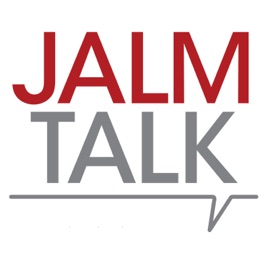
5
4
129
JALM Talk Podcast
Association for Diagnostics and Laboratory Medicine

5
3
23
European Pharmaceutical Review podcast
European Pharmaceutical Review

4
1
100
Reliv Europe's Podcast
Reliv
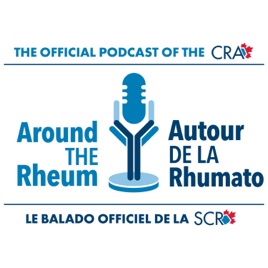
5
5
38
Around the Rheum
Canadian Rheumatology Association
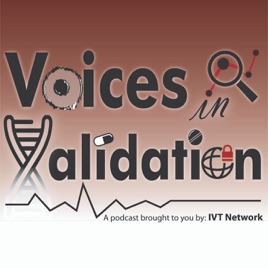
5
6
129
Voices In Validation
IVT Network

5
7
13
Power of the Flower
J + D

5
7
29
Spex Speaks Science
Spex, an Antylia Scientific company
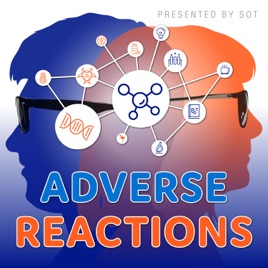
4.9
14
23
Adverse Reactions
Anne Chappelle, PhD, and David Faulkner, PhD

5
2
25
Extraction Essentials
Tony Frischknecht

0
0
245
Fakt oder Fake: Internetmythen auf dem Prüfstand – MDR JUMP
Mitteldeutscher Rundfunk



